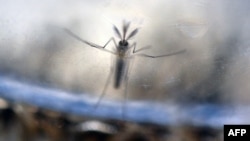Two more people in China have been diagnosed with the Zika virus, bringing the total number of cases in China to eight.
A 6-year-old and an 8-year-old recently returned from Venezuela, arriving in Guangzhou with rashes and fever. So far transmission has not been reported in China, but some experts say with summer approaching, that may change.
Ben Cowling, a professor at the University of Hong Kong’s school of public health, said, “It’s quite likely I believe that Zika will spread in central America and the southern United States, and so once that happens there will be epidemics of Zika in the northern hemisphere, in summer, and probably a greater chance of exportation to Southeast Asia.”
The Zika virus was discovered nearly 70 years ago, but over the last few months the virus is believed to have caused severe birth defects in children born to infected women. The disease has now been found in nearly 30 countries and territories.
Modern trends worsen spread of virus
Globalization and increased international travel is allowing the virus to spread quickly.
Duane Gubler, a professor at the Duke-NUS Graduate Medical School in Singapore, said urbanization, with large numbers of people living in urban centers in developing countries, has also fostered spread of the disease.
“A lot of those people live in inadequate housing, they live in conditions without good hygiene, with poor water systems, poor waste management, and that creates ideal conditions for the breeding of the vector mosquito,” he said.
China’s densely packed cities could prove a haven for the virus, but officials say they are prepared. The government has stepped up screening of travelers at airports, and is eradicating mosquitoes on aircraft. Most people who catch the virus don’t show any symptoms, but pregnant women are at the most risk.
China’s National Health and Family Planning Commission has also urged citizens to remain vigilant as temperatures rise during the spring and summer months.
Dr. Bernhard Schwartländer, the WHO representative in China, said, “I think the authorities are on very high alert. As it’s getting warmer, these mosquito populations are becoming more active, so the control of the mosquito is becoming more and more important.”
China says it has quarantined all of the people who have been diagnosed the virus. The majority of the infections in China were contracted in South America, including four in Venezuela and one in Suriname. Three Chinese patients were infected in Fiji and Samoa.
Zika may be connected to more than 3,000 cases of microcephaly in Brazil, in which babies are born with developmental problems.









